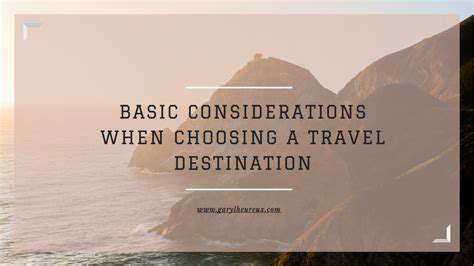Tips for Staying Healthy While Traveling
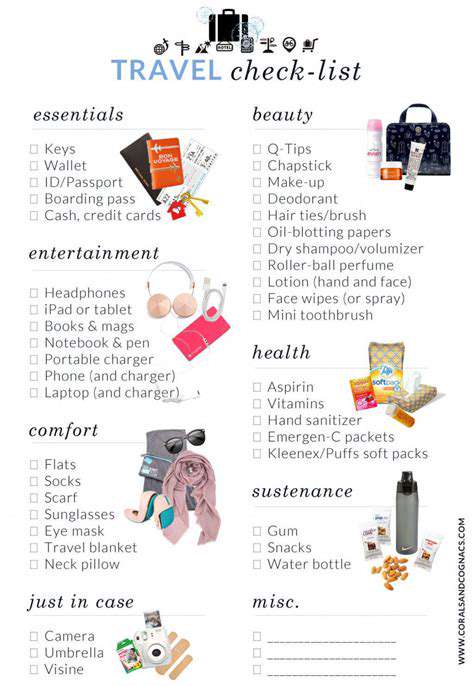
Essential Packing for a Healthy Journey:
When preparing for travel, smart packing can make all the difference in maintaining your well-being. Focus on items that enhance both comfort and health, eliminating unnecessary bulk that adds physical and mental strain. Research your destination's weather patterns and planned activities to customize your packing list. This thoughtful preparation guarantees you'll have what's needed to stay healthy while enjoying your adventure.
A comprehensive travel health kit becomes invaluable, especially when visiting areas with different sanitation standards or if you have existing medical conditions. Being properly equipped means you can handle unexpected situations while keeping up with your health routine during travels.
Hydration and Nutrition:
Maintaining proper fluid levels is critical for travelers. Bring refillable water containers and electrolyte supplements to replace minerals lost through activity. Thoughtful meal planning sustains energy and supports overall health. Pack wholesome snacks like fresh fruit, mixed nuts, and granola bars to maintain steady energy and avoid poor food choices when hunger strikes.
Medications and Personal Care:
Organize all prescribed and over-the-counter medicines in their original packaging, including any medical devices you require. Document your medication schedule and dosages for quick reference. This ensures proper treatment continuity throughout your trip. Don't forget personal hygiene items, sun protection, and any specialized medical gear.
Always verify medication regulations at your destination and carry appropriate documentation.
Clothing and Comfort:
Select adaptable, comfortable clothing suited to your destination's climate and planned activities. Choose breathable, quick-drying fabrics for maximum comfort, particularly in warm or humid locations. Layering allows for temperature adjustments throughout the day. Pack suitable footwear for different occasions, ensuring all-day comfort and support.
Personal Hygiene and Safety:
Good hygiene practices are your first defense against travel-related illnesses. Include hand sanitizer, disinfecting wipes, and other cleanliness essentials. Consider portable handwashing solutions if clean water access might be limited. Pack destination-specific safety items like insect repellent or other protective gear as needed.
Documents and Communication:
Keep all travel paperwork - passports, visas, boarding passes - organized and accessible. Always carry duplicates of critical documents, preparing you for any situation. Arrange reliable communication methods, whether through international phone service or local SIM cards. This connectivity is vital for emergencies and staying in touch.
Nourishing Your Body on the Go: Fueling Your Adventures
Prepping for the Unexpected: Packing Power Snacks
Advance preparation is crucial for maintaining healthy eating habits while traveling. Rather than resorting to vending machine snacks when hunger hits, prepare nutrient-dense options beforehand. Almonds and sunflower seeds offer healthy fats and protein. Dried fruits like raisins or mango provide natural sweetness and vital nutrients. Pair these with whole-grain bread or hard cheese for balanced, satisfying snacks that sustain energy levels and prevent midday slumps.
Simple combinations like banana with almond butter deliver fiber, protein, and good fats to satisfy hunger and provide lasting energy - perfect for active travelers. Use reusable containers to keep snacks fresh and minimize environmental impact.
Hydration is Key: Staying Quenched While Traveling
Adequate fluid intake is essential for peak physical and cognitive function during travel. Carry an insulated water bottle and refill regularly. While eight glasses daily is a good baseline, adjust based on activity intensity and climate conditions. Proper hydration regulates body temperature, aids digestion, and sustains energy - all critical for enjoyable travels.
Smart Choices at Restaurants: Navigating the Dining Scene
Dining out needn't derail healthy habits. Select grilled or roasted dishes over fried options. Choose lean proteins like turkey or seafood with plenty of vegetables. Opt for whole grain sides like farro or wild rice for sustained energy. Don't hesitate to inquire about preparation methods and ingredients to ensure meals meet your dietary preferences.
Mindful portion control enhances the dining experience. Share entrees or box half for later to enjoy flavors without overeating. These strategies let you savor local cuisine while maintaining wellness goals.
Fueling Your Fitness Adventures: Nourishing Your Body for Exercise
Proper nutrition supports physical activity whether at the hotel gym or exploring nature trails. Before workouts, consume balanced snacks with complex carbs and protein for energy. During extended activity, replenish with electrolyte beverages. Post-activity, include protein to aid muscle recovery. This comprehensive approach maximizes workout benefits and promotes overall health.
The Role of Fruits and Vegetables: Nature's Powerhouses
Colorful produce provides essential vitamins, minerals, and fiber for optimal health. Incorporate diverse fruits and vegetables into meals and snacks. Berries, spinach, and citrus fruits offer particularly high nutrient density, with vibrant colors signaling beneficial antioxidants that protect cells. Pack portable options like baby carrots or apple slices for convenient, healthy snacking.
Mindful Eating Habits: Cultivating a Healthy Relationship with Food
Developing mindful eating practices enhances nutrition during travel. Tune into hunger and fullness signals. Eat slowly, savoring flavors and textures. Minimize distractions during meals to fully appreciate the experience. This mindful approach fosters healthier food relationships and better choices anywhere.
Staying Hydrated and Active: Keeping Your Body Moving
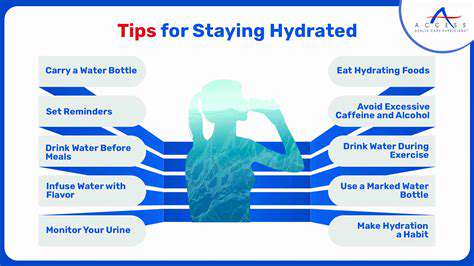
Staying Hydrated: Essential for Well-being
Proper hydration supports nearly all bodily functions. Water facilitates nutrient transport, temperature regulation, and waste removal. Dehydration causes fatigue, headaches, and impaired thinking. Maintaining fluid levels sustains energy, aids digestion, and optimizes performance during activities.
Consistent water intake is vital for health. Recognize early dehydration signs like dry mouth, as thirst indicates existing fluid deficit. Carrying water and setting hydration reminders helps maintain proper intake.
The Importance of Regular Movement
Consistent physical activity strengthens the body and reduces chronic disease risks. Various activities - from walking tours to swimming - contribute to fitness goals. Regular exercise improves mood, reduces stress, and enhances sleep quality. Finding enjoyable activities makes maintaining an active lifestyle sustainable.
Hydration and Exercise: A Synergistic Relationship
Fluid needs increase during physical activity. Exercise-induced sweating requires conscious fluid replacement. Dehydration during workouts reduces performance and increases injury risk.
Hydrate before, during, and after exercise. Post-workout rehydration is equally important as pre-exercise preparation. Monitor urine color as a simple hydration gauge.
The Role of Electrolytes in Hydration
Minerals like sodium and potassium maintain fluid balance and muscle function. These electrolytes deplete through sweat during intense activity. While sports drinks replenish electrolytes, be mindful of sugar content. Natural sources like coconut water offer healthier alternatives.
Hydration Strategies for Busy Individuals
Maintaining hydration during busy travel requires planning. Keep water accessible and set phone reminders for regular intake. Flavor water with citrus or mint for variety. Always carry water when exploring new destinations.
Active Lifestyles: Benefits Beyond Physical Health
Regular activity enhances mental health and cognitive function. Exercise alleviates anxiety and depression symptoms while boosting mood. Consistent movement improves sleep quality and stress management. These benefits complement the physical advantages of activity.
Finding Activities You Enjoy: Key to Long-Term Success
Sustainable activity comes from enjoyable pursuits. Experiment with different exercises to discover preferences. Sample various classes or sports to find fulfilling options. Group activities or workout partners increase motivation through social connection.
Nonverbal communication speaks volumes before words are exchanged. Confident posture, natural eye contact, and relaxed yet engaged demeanor create positive impressions. Slouching or nervous gestures may convey insecurity. With practice, improved body language enhances perceived professionalism and self-assurance.
Managing Jet Lag and Time Zone Changes: Navigating the Body Clock
Understanding Your Body's Circadian Rhythm
Your internal biological clock regulates sleep cycles, hormone release, and body temperature, synchronizing with environmental light cues. Rapid time zone changes disrupt this rhythm, causing jet lag symptoms. This complex system adapts gradually, requiring patience during adjustment periods.
Preparing for Your Trip: Strategies for Minimizing Jet Lag
Proactive planning reduces jet lag impact. Gradually adjust sleep schedules before departure to align with destination time. Pack sleep aids like eye masks and noise-canceling headphones. Stay hydrated throughout travel with a reusable water bottle.
In-Flight Strategies for Maintaining Circadian Rhythm
Align activities with destination time during flights. Stay awake during destination daylight hours and sleep when appropriate. Adjust meal times accordingly. Maximize exposure to natural light through windows to help reset your internal clock.
Adjusting to the New Time Zone: Post-Arrival Strategies
Immediately adopt local schedules upon arrival. Eat meals at standard local times and maintain regular sleep patterns. Avoid heavy meals and caffeine before bedtime. Stay active and hydrated to facilitate adjustment.
Dietary and Nutritional Considerations
Meal timing and content influence circadian adjustment. Eat balanced meals aligned with local time. Avoid rich foods before sleep. Ensure adequate nutrient intake during transition periods.
Using Light Therapy to Support Circadian Rhythm
Strategic light exposure helps reset biological clocks. Seek morning sunlight or use light therapy devices. Consult professionals about proper light therapy use for optimal results.
Practicing Hygiene and Preventing Illness: Maintaining Your Health Abroad
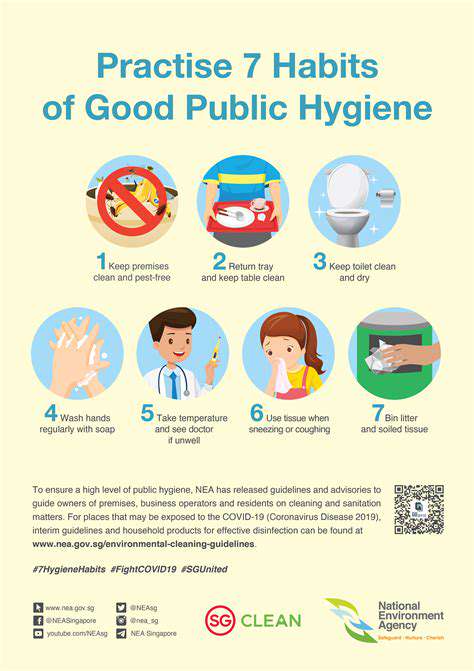
Maintaining Cleanliness
Consistent hygiene practices prevent illness transmission. Frequent handwashing with soap for 20 seconds effectively removes pathogens. This simple practice reduces risks of colds, flu, and digestive issues.
Clean living spaces minimize germ exposure. Regularly disinfect high-touch surfaces like doorknobs and counters. Proper sanitation procedures significantly reduce microbial contamination.
Preventing the Spread of Germs
Understanding germ transmission enables effective prevention. Practice respiratory etiquette by covering coughs and sneezes properly. This is particularly important during peak illness seasons.
Limit contact with sick individuals and stay home when ill. Follow food safety protocols including proper washing, storage, and preparation. These measures prevent foodborne illnesses during travels.
Importance of Personal Hygiene
Comprehensive hygiene includes regular bathing, oral care, and nail maintenance. These fundamental practices strengthen immunity and prevent infections. Consistent hygiene habits protect individual health while contributing to community well-being.

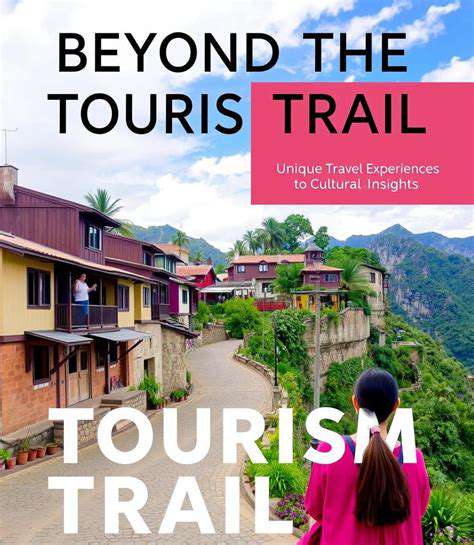


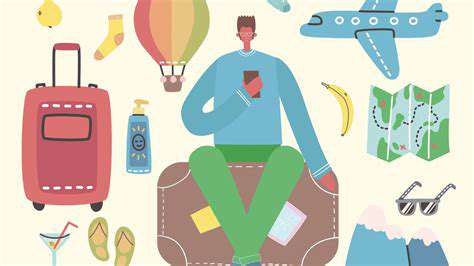
![How to Travel on Points and Miles [Travel Hacking]](/static/images/27/2025-05/StayingUpdatedontheLatestTravelHackingTrendsandOpportunities.jpg)


![Family Travel Itinerary Ideas [Worldwide Destinations]](/static/images/27/2025-05/ExoticAsianExplorations3AAncientWondersandVibrantCultures.jpg)


